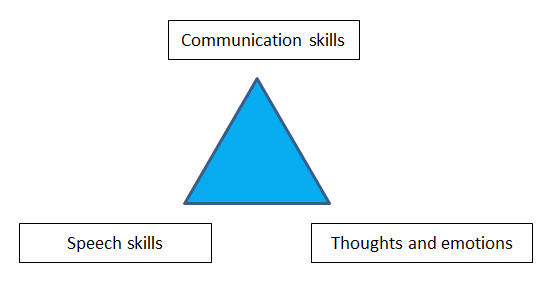We aim to contact new clients within three weeks. At that time we can give an estimation of how long the wait for an actual assessment appointment will be.
Adults - FAQs

FAQs about your assessment
How long will my appointment last?
Your assessment will last for approximately 2 hours. You will be sent some questionnaires beforehand for you to fill out and bring them with you. If you need help filling them out then you can bring them with you to your appointment and your therapist will help you.
What will happen in my assessment?
Your therapist will ask you about your experience of stammering, how it impacts on various aspects of your life, and what you are hoping to achieve if you decide to start therapy. Your therapist will ask you to do some reading and talking while being video-recorded and may ask you to fill in some additional questionnaires.
You and your therapist will talk about the key factors relevant to understanding your stammer and how it impacts on you, and also about therapy options. You may have a sense of what you would like to do straight away, however it will be ok if you want to take some time to think it over. If you are attending as a private client then you will also be given more information, if needed, about the fees for therapy.
What do I do if I need an interpreter?
Make sure you say on your referral form that you would like an interpreter to help. We cannot guarantee an interpreter but we make every effort to provide one for NHS clients.
Can I get help for cluttering?
Yes. Many people who stammer also have features of cluttering in their speech. Therapy is tailored to your needs.
FAQs about therapy
Can I come to a group at the Michael Palin Centre?
No, we do not currently run group therapy for adults who stammer. We offer one-to-one therapy with a specialist speech and language therapist. Group therapy is available at the City Literary Institute in Holborn.
What hours does the Centre open?
The Centre is open Monday to Friday. The first appointment is generally at 9.30 and the last at 3.30. Therapy sessions are for one hour.
Can I attend by skype?
Yes. If you have access to skype and wish to have therapy by skype that is often available, depending partly on what you want to work on in therapy. In general, we encourage people to attend their initial assessment in person.
What sort of therapy can I get at the Michael Palin Centre?
Communication skills

What are ‘speech skills’?
This means learning ways to control how often you stammer, to reduce how much struggle or tension you experience, or to stammer in a more ‘easy’ way and mind less about it. You may have experience of learning speech skills before and you may or may not feel that it is the right approach for you now. Importantly, it is not the only way to move forward towards the goals that you have and indeed feeling more comfortable about stammering openly can be an important idea for many people.
How can therapy help me with how I feel about stammering?
Find out more about Cognitive Behaviour Therapy (CBT)
CBT is based on the idea that what we think affects how we feel and also how we respond in situations. As human beings we are naturally attuned to notice anything that feels threatening, even in social situations. Some people who stammer find the idea that they pay more attention to potential or actual negative listener reactions, and that this contributes to their apprehension about speaking if they feel that they might stammer.
In CBT you learn to identify unhelpful thoughts and to use various ‘thinking skills’ to help you manage challenging situations. This includes learning how to harness more positive, helpful perspectives and to learn problem-solving skills.
CBT is widely used in the NHS to help people with a range of emotional concerns including anxiety and depression. Over the last 20 years CBT has increasingly been used in therapy for people who stammer and it has been shown to reduce speech-related social anxiety in adults who stammer. Four therapists at the Michael Palin Centre have formal qualifications in CBT and all have experience in incorporating it into their work with clients.
Find out more about Acceptance and Commitment Therapy (ACT)
Acceptance and Commitment Therapy is based on the idea that we can all get caught up in unhelpful patterns of thinking and of responding, particularly when we are trying to avoid experiencing something uncomfortable or unwanted. In ACT you learn mindfulness skills as well as ways to ‘unhook’ from uncomfortable thoughts and feelings, be more open, and get on with doing what matters to you.
How can communication skills help me?
Stammering can potentially have an impact on how effectively people communicate. For some people learning how to communicate confidently it is a powerful part of therapy.
What if I don’t know what I want?
That is fine. Many people don’t know that much about what sort of therapy is available, and when that is the case it can feel daunting starting out. If you feel you would like to explore therapy then the main thing is to get in touch, and the therapist you talk with will help you gradually work out the right direction for you. People often want to explore different ideas, or combinations of things, and the direction that therapy takes can change over time as well. The most important thing to know is that therapy is tailored to everyone individually.

